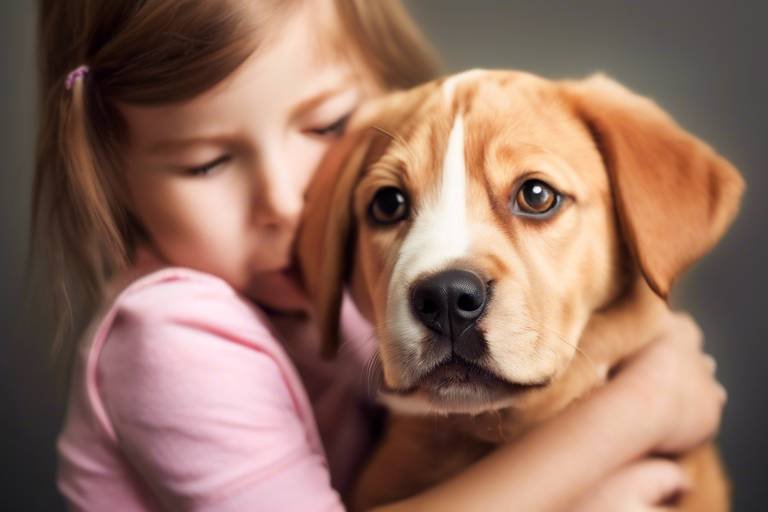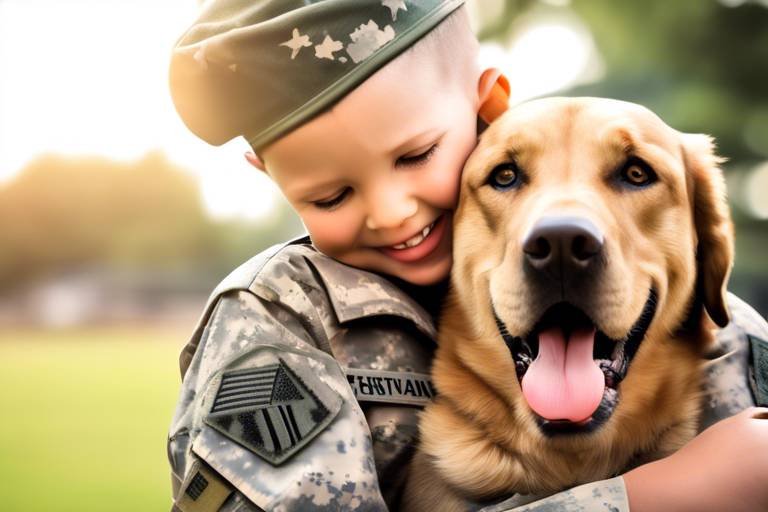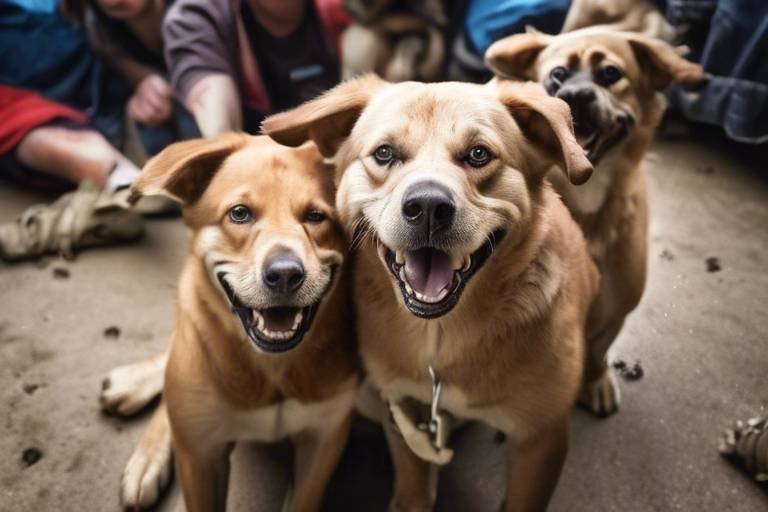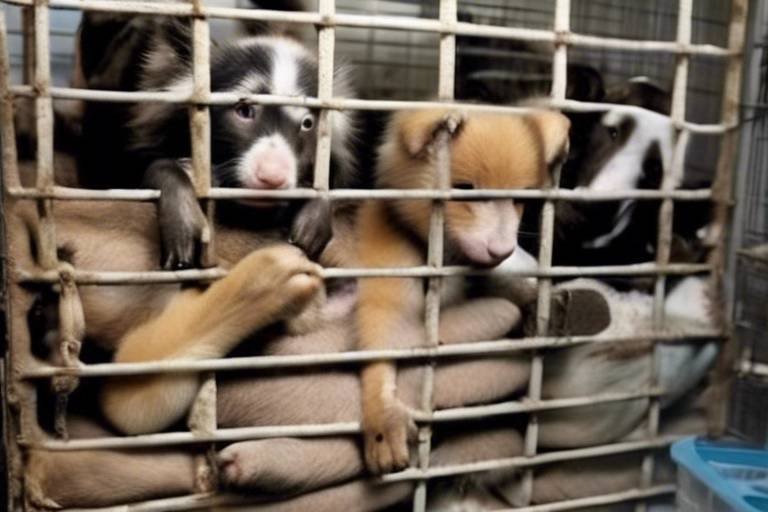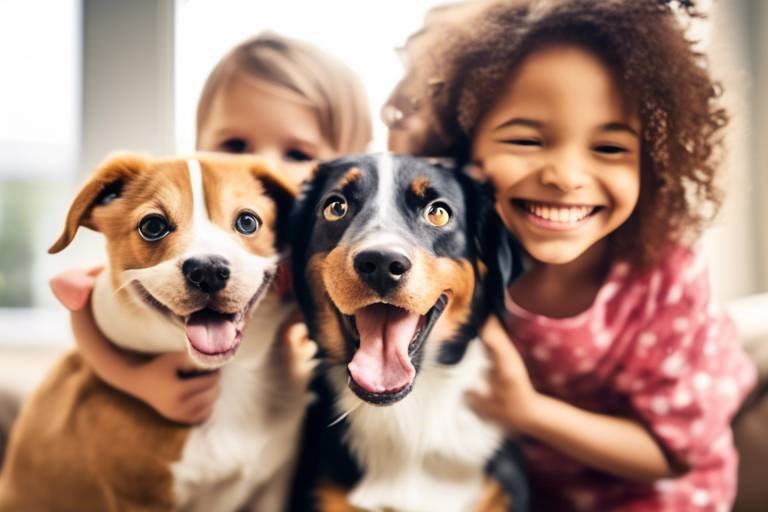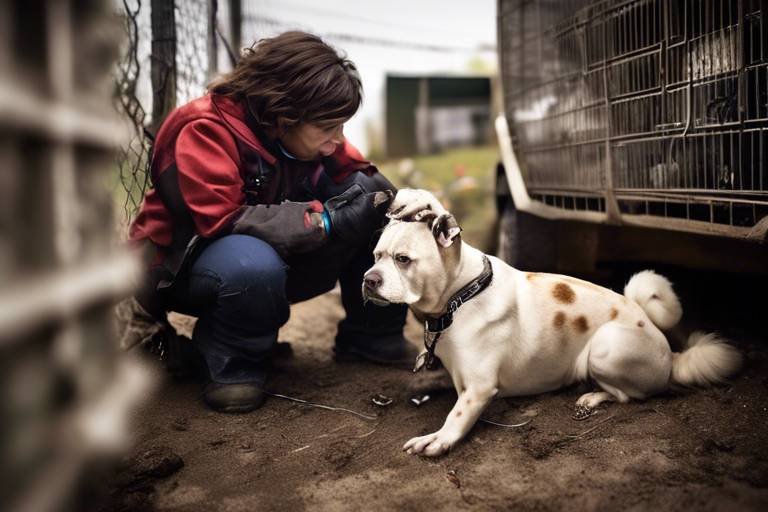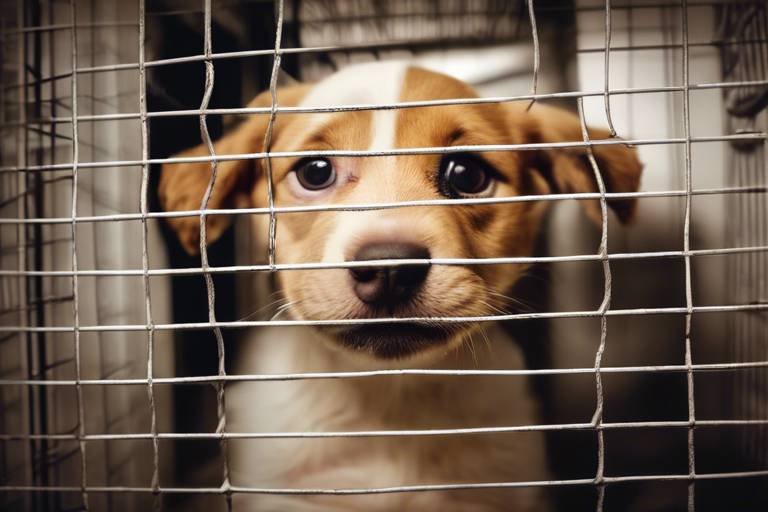The Importance of Adopting Older Pets
When it comes to choosing a furry friend, many people gravitate towards the adorable puppies or playful kittens, often overlooking the hidden treasures that older pets represent. Adopting an older pet can be one of the most rewarding decisions you ever make. These animals, often left behind in shelters, possess a wealth of experience, love, and companionship just waiting to be shared. Imagine coming home to a gentle soul who has been through the ups and downs of life, ready to offer you their loyalty and affection. Isn’t that the kind of bond we all crave?
Older pets have a unique charm that younger animals simply can't match. They come with established temperaments, making them easier to integrate into your home. You won’t have to worry about the chaotic energy that a puppy brings; instead, you’ll find a calm and loving companion who is already accustomed to living in a household. This can be especially beneficial for families with children or for individuals who may have a more relaxed lifestyle.
Moreover, adopting an older pet is not just about providing a home; it’s about giving a second chance to animals who have often faced neglect or abandonment. Every year, millions of older pets enter shelters, and unfortunately, many remain there due to misconceptions about their age and health. By choosing to adopt an older pet, you are not only enriching your life but also making a significant impact on the lives of these animals.
Consider this: when you adopt an older pet, you are helping to reduce overcrowding in shelters. Shelters are often overwhelmed with younger animals, leaving older pets at a higher risk of being overlooked. By bringing an older pet into your home, you are creating space for shelters to rescue more animals in need. It’s a win-win situation that can transform lives, both human and animal alike.
In conclusion, the importance of adopting older pets cannot be overstated. They offer love, companionship, and a unique bond that can enrich your life in ways you never imagined. So, the next time you think about bringing a pet into your home, don’t forget to consider the older ones waiting for their forever homes. You might just find that the best friend you’ve been looking for is a little gray around the edges.
- What are the benefits of adopting an older pet? Older pets often have established behaviors and training, making them easier to integrate into your home. They also tend to be calmer and more affectionate.
- Are older pets more prone to health issues? While older pets can have health concerns, many are manageable with regular veterinary care and a healthy lifestyle.
- How can I prepare for adopting an older pet? Research common health issues associated with older pets and consult with a veterinarian to ensure you’re ready for the responsibility.
- What can I do to help older pets in shelters? You can volunteer, foster, or donate to local shelters, and spread the word about the importance of adopting older pets.
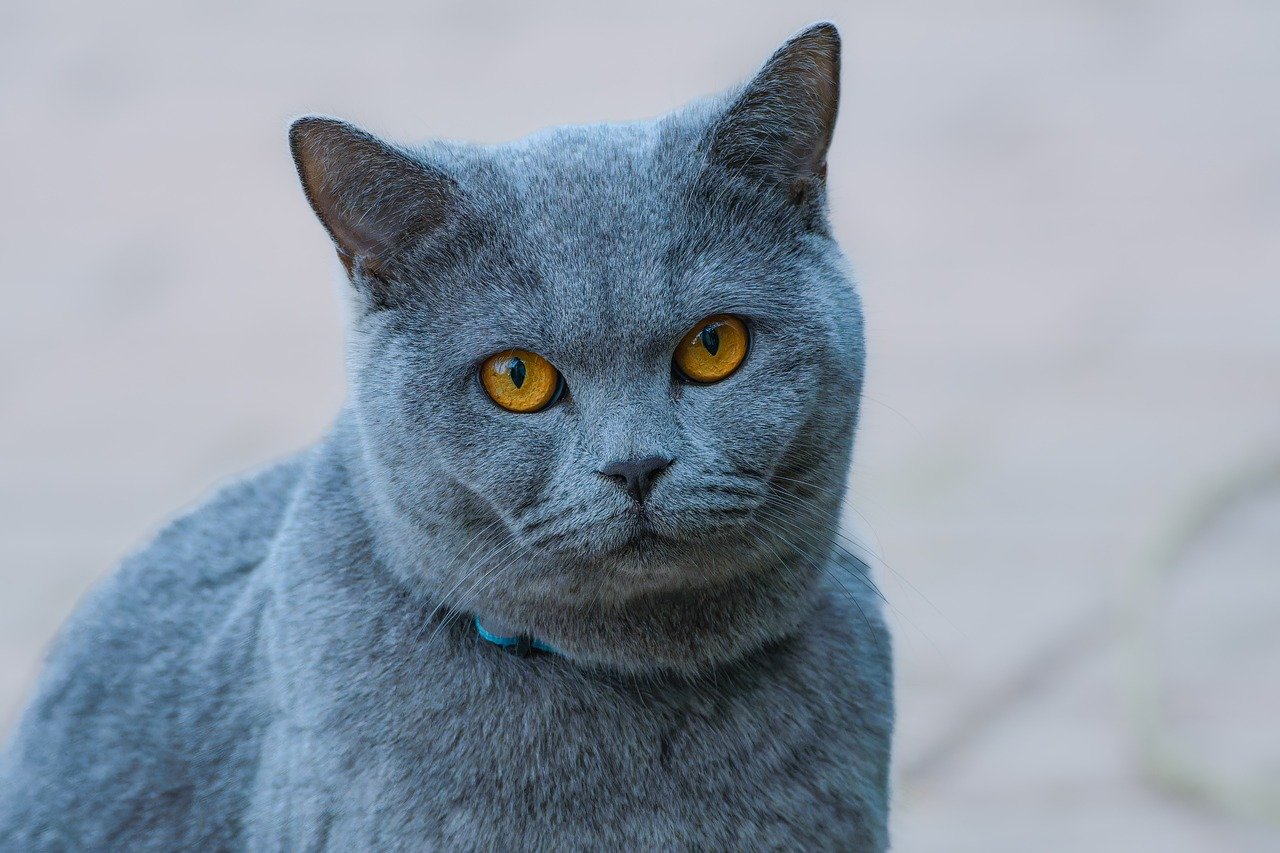
Understanding the Benefits of Older Pets
When it comes to adopting a pet, many people often gravitate towards the adorable, energetic puppies or kittens, but have you ever considered the amazing advantages of bringing an older pet into your home? Older pets, typically defined as those over the age of five, come with a unique set of benefits that can make them the perfect companions for many families. One of the most significant advantages is their established temperament. Unlike younger animals who may still be figuring out their personalities, older pets have often settled into their unique quirks and behaviors. This means less guesswork for you as an adopter, making it easier to find a pet that fits seamlessly into your lifestyle.
Moreover, older pets often come with some level of training. Many have already mastered basic commands and house training, which can save you time and effort. Imagine bringing home a dog that knows how to sit, stay, and even fetch! Not only does this make the transition smoother, but it also allows you to spend more quality time enjoying each other's company instead of focusing on training. Additionally, older pets tend to be less hyperactive, making them ideal for families with children or individuals who prefer a more relaxed companion. They can provide unconditional love and companionship without the high energy levels that younger pets often exhibit.
Another remarkable benefit of adopting older pets is their loyalty. Many senior animals have been through challenging experiences, and once they find a loving home, their gratitude can be overwhelming. This can lead to incredibly deep bonds between you and your new furry friend. Picture this: after a long day, you come home to a pet that is genuinely excited to see you, ready to curl up beside you on the couch. It’s these moments that make having an older pet so rewarding.
Additionally, adopting an older pet can have a profound impact on your local animal shelter. By choosing to adopt a senior animal, you’re not only giving them a second chance at life but also helping to alleviate the burden on shelters that are often overcrowded with younger animals. Shelters can then redirect their resources to care for other animals in need, creating a ripple effect of kindness and compassion throughout your community. So, when you choose to adopt an older pet, you’re making a difference not just in their life, but in the lives of many other animals waiting for their forever homes.
In conclusion, the benefits of adopting older pets are numerous and far-reaching. From their established training and calmer demeanor to their deep loyalty and the positive impact on shelters, these animals deserve a loving home just as much as their younger counterparts. So, the next time you consider bringing a pet into your life, think about opening your heart to a senior pet. You might just find the most fulfilling companionship you could ever imagine!
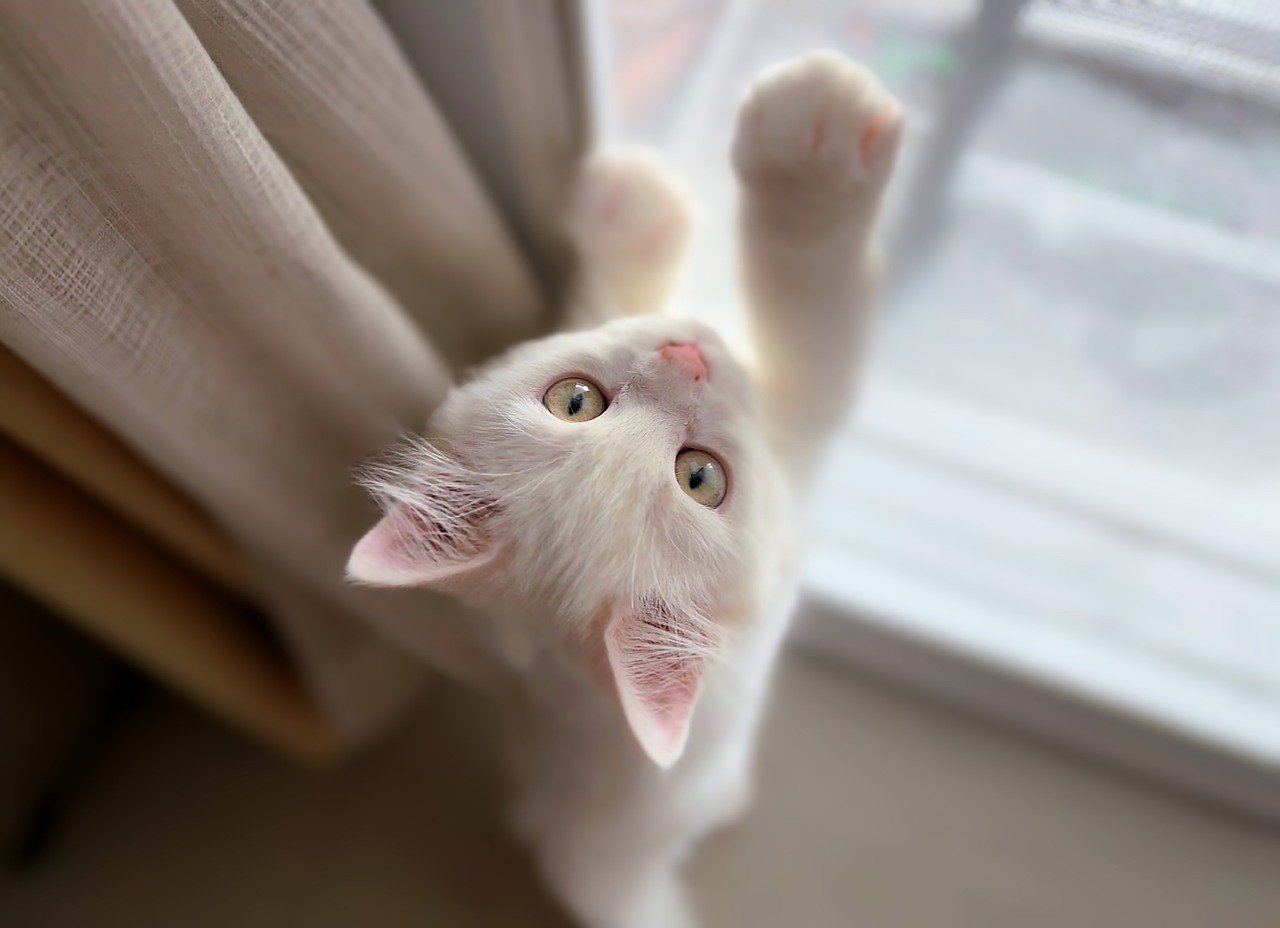
Myths About Older Pet Adoption
When it comes to adopting pets, older animals often get a bad rap. Many people harbor misconceptions about adopting senior pets, believing that they come with a host of problems. This stigma can prevent loving families from welcoming these wonderful companions into their homes. So, let's debunk some of the most common myths that surround older pet adoption and shed light on the truth.
One prevalent myth is that older pets are untrainable or set in their ways. In reality, many older pets have already mastered basic commands and house training, which can make the transition to a new home much smoother. Imagine adopting a pet that already knows how to sit, stay, and even fetch! It’s like getting a pre-trained companion who’s ready to snuggle and play without the hassle of starting from scratch.
Another common misconception is that older pets are more likely to have health problems. While it’s true that senior pets may face certain health challenges, it’s essential to understand that many of these issues are manageable with proper care and regular vet visits. In fact, many older pets are in good health and can live for several more happy years. It’s all about finding the right match and being prepared for the responsibilities that come with pet ownership.
Some people also believe that adopting an older pet means they won’t bond as deeply with their new family. This couldn’t be further from the truth! Older pets often have a profound sense of gratitude and love to give. They know what it means to be rescued and will often form incredibly strong bonds with their new owners. The joy of seeing an older pet thrive in a loving home is an experience that can be deeply rewarding.
Let’s not forget the myth that older pets are less energetic and won’t be able to keep up with an active lifestyle. While it’s true that they may not have the same energy levels as a puppy or kitten, many older pets still enjoy playtime and walks. They can be perfect companions for those who prefer a more relaxed lifestyle but still want a furry friend to share their life with.
In summary, the myths surrounding older pet adoption can deter many from considering these wonderful animals. By addressing these misconceptions, we can encourage more people to open their hearts and homes to senior pets. They offer a wealth of love, companionship, and joy that can enrich our lives in ways we never imagined.
- Are older pets harder to train? No, many older pets are already trained and can adapt quickly to new environments.
- Do older pets have more health problems? While they may have some health issues, many can be managed with proper care.
- Can older pets bond with their owners? Absolutely! Older pets often form deep, lasting connections with their adopters.
- Are older pets less active? Not necessarily! Many older pets still enjoy playtime and walks, just at a more relaxed pace.
Health Considerations
When it comes to adopting older pets, one of the primary concerns often revolves around their health. It's true that as animals age, they may face a few more health challenges than their younger counterparts. However, this doesn’t mean they’re any less deserving of a loving home. In fact, many of these health issues can be effectively managed with proper care and attention. Think of it like maintaining a classic car; with a bit of regular maintenance and the right parts, it can run smoothly for years!
Regular veterinary check-ups become crucial when you adopt an older pet. These visits allow for early detection of potential health issues, which can significantly improve their quality of life. For example, conditions like arthritis or dental problems are common in older pets, but they can often be managed with medication, special diets, or even simple lifestyle changes. Just as we humans might need to adjust our routines as we age, so do our furry friends.
Moreover, a balanced diet tailored to the needs of senior pets is essential. Older pets may not require as many calories as younger ones, but they do need nutrients that support joint health and overall wellness. A diet rich in omega fatty acids, for instance, can help keep their skin and coat healthy, while also providing anti-inflammatory benefits. It's like choosing the right fuel for a high-performance engine; the better the quality, the better the performance!
Another key aspect of health considerations is exercise. While older pets may not be as energetic as puppies or kittens, they still need regular, appropriate physical activity to maintain their health. Short, gentle walks and play sessions can keep them active without overexertion. Think of it as a leisurely stroll in the park rather than a sprint; it's all about keeping them engaged without pushing their limits.
In summary, while there are health considerations to keep in mind when adopting an older pet, many of these can be managed effectively with the right care. With regular veterinary visits, a balanced diet, and appropriate exercise, older pets can lead fulfilling, happy lives. So, if you’re considering adopting, remember that an older pet can be just as rewarding, if not more so, than a younger one!
- What are the common health issues in older pets?
Older pets may face challenges such as arthritis, dental problems, and heart disease. Regular vet visits can help in early detection and management. - How can I ensure my older pet stays healthy?
Routine check-ups, a balanced diet, and appropriate exercise are key factors in maintaining an older pet's health. - Are older pets more expensive to care for?
While they may require more frequent vet visits, the costs can vary widely depending on the pet's specific health needs. - Can older pets still learn new tricks?
Absolutely! Older pets can learn just as well as younger ones, though they may require a bit more patience and positive reinforcement.
Common Health Issues
As our furry friends age, they may encounter a variety of health challenges that can affect their quality of life. Understanding these common health issues not only prepares potential adopters but also highlights the importance of regular veterinary care. One of the most prevalent concerns is arthritis, which can lead to joint pain and stiffness, making it difficult for older pets to move around comfortably. You might notice your pet hesitating to jump onto the couch or struggling to climb stairs. This is their way of telling you that something isn’t quite right.
Another common issue is dental problems. Just like humans, pets can suffer from plaque buildup, gum disease, and tooth decay as they age. Regular dental check-ups and cleanings can help maintain their oral health, preventing pain and even more serious health complications that can arise from poor dental hygiene.
Additionally, older pets may experience kidney disease, which can be particularly concerning. As their kidneys become less efficient, they may drink more water and urinate more frequently. If you notice these changes, it’s essential to consult with your veterinarian. Early detection can lead to better management of the condition, allowing your pet to live a comfortable life.
Other health issues that might arise include:
- Obesity: Older pets are less active, which can lead to weight gain. Maintaining a healthy diet and regular exercise is crucial.
- Vision and hearing loss: Many senior pets experience decreased senses, which can affect their interaction with the world.
- Heart disease: Like humans, pets can develop heart problems as they age, making regular check-ups vital.
It's important to remember that while these health issues are common, they are often manageable with the right care. Regular veterinary check-ups, a balanced diet, and appropriate exercise can significantly improve the quality of life for older pets. By being proactive and attentive to their needs, you can ensure that your senior pet enjoys their golden years to the fullest.
Q: What should I look for when adopting an older pet?
A: Look for a pet that matches your lifestyle. Consider their health, temperament, and any special needs they may have. Spending time with the pet before making a decision can also help you gauge compatibility.
Q: How can I help manage my older pet's health issues?
A: Regular veterinary visits, a proper diet, and exercise tailored to their abilities can help manage health issues. Additionally, consider supplements that support joint health and overall well-being.
Q: Are older pets less likely to be adopted?
A: Unfortunately, yes. Many people prefer younger pets, but older pets often have so much love to give and can be perfect companions. They deserve a chance at a loving home!
Q: What if my older pet has special health needs?
A: Many shelters and rescues are willing to provide guidance and support for adopting pets with special health needs. Always ask about the pet’s medical history and any ongoing treatments.
Preventive Care for Seniors
When it comes to our beloved older pets, preventive care is absolutely essential for ensuring they lead happy and healthy lives. Just like us, as pets age, they become more susceptible to various health issues. However, with the right preventive measures in place, many of these issues can be managed effectively, allowing your furry friends to enjoy their golden years to the fullest.
One of the most important aspects of preventive care is regular veterinary check-ups. These visits allow your vet to monitor your pet's health, catch any potential problems early, and adjust care plans as needed. Ideally, seniors should see the vet at least twice a year. During these visits, vets can perform routine blood tests, dental examinations, and even weight assessments to ensure your pet is in tip-top shape.
Another critical component of preventive care is maintaining a balanced diet tailored to your pet's specific needs. Older pets often require a diet that is lower in calories but higher in fiber to help maintain a healthy weight and support digestion. It's also essential to include ingredients that promote joint health, such as omega fatty acids. Always consult with your veterinarian to determine the best diet for your senior pet. Remember, a well-fed pet is a happy pet!
Exercise is equally important, although it may look different for older pets compared to their younger counterparts. Regular, gentle exercise helps keep their muscles toned and their joints flexible. Short walks, play sessions, or even light stretching can make a significant difference. Just be sure to observe your pet's limits and adjust activities accordingly. After all, we wouldn't want to overexert our aging companions!
Lastly, don't forget about the importance of mental stimulation. Older pets can benefit immensely from engaging activities that keep their minds sharp. Puzzle toys, interactive games, and even basic training sessions can help keep their cognitive functions in check. Just like us, pets enjoy a good challenge, and it can be a wonderful bonding experience for both of you.
To summarize, preventive care for senior pets encompasses:
- Regular veterinary check-ups: Aim for at least biannual visits.
- Balanced diet: Consult your vet for dietary recommendations.
- Gentle exercise: Short walks and play sessions are key.
- Mental stimulation: Engage them with puzzles and training.
By implementing these preventive measures, you can significantly enhance the quality of life for your older pet, ensuring they remain a cherished part of your family for years to come. Remember, a little effort goes a long way in making sure your furry friend stays healthy, happy, and ready to share their love with you!
Q: How often should I take my senior pet to the vet?
A: It’s recommended to take senior pets to the vet at least twice a year for check-ups to monitor their health closely.
Q: What signs should I look for to know if my older pet is unwell?
A: Watch for changes in appetite, energy levels, behavior, or any signs of discomfort. If you notice anything unusual, consult your vet.
Q: Can I continue to feed my older pet the same food?
A: Not necessarily. Older pets often have different nutritional needs, so it’s best to consult with your vet for dietary adjustments.
Q: How can I keep my senior pet mentally stimulated?
A: Engage them with puzzle toys, training exercises, or even simple games to keep their minds sharp and active.
Behavioral Traits of Older Pets
When it comes to adopting a furry friend, one of the most appealing aspects of older pets is their behavioral traits. Unlike their younger counterparts, who are often bursting with energy and curiosity, older pets tend to be more calm and settled. This tranquility can be incredibly beneficial for families, especially those with young children or elderly individuals. Imagine coming home from a long day at work to a pet that greets you with a gentle wag of the tail or a soft purr, rather than a whirlwind of excitement that might knock you over!
Older pets often come with established temperaments, which means you have a better idea of what you’re getting. They’ve had time to develop their personalities, and many are already trained in basic commands. This can save you the time and effort of housebreaking or teaching them not to chew on your favorite shoes. It’s like adopting a pet that comes with a manual—you know what to expect, and you can plan accordingly.
Moreover, older pets are typically less demanding in terms of exercise. While they still enjoy a good walk or play session, their energy levels are more manageable. This can be a perfect fit for individuals or families who may not have the time or ability to engage in vigorous activities. For instance, if you’re someone who enjoys a quiet evening on the couch, an older pet will likely be right there with you, content to snuggle and relax.
Another wonderful aspect of older pets is their emotional intelligence. Many have been through various life experiences, which can make them more attuned to human emotions. They often seem to sense when you’re feeling down and will provide comfort in their own special way. This deep emotional connection can lead to a bond that is incredibly rewarding for both the pet and the owner.
It's also worth mentioning that older pets often come with a sense of gratitude that can be heartwarming. They may have been in shelters for an extended time, longing for a loving home. When they finally find their forever family, their appreciation can shine through in their behavior. You might notice them following you around, giving gentle nudges for attention, or simply curling up next to you, as if to say, "Thank you for choosing me."
In summary, older pets bring a unique set of behavioral traits that can enhance your life in countless ways. They are calm, loving, and often more emotionally aware than younger animals. If you’re looking for a companion who will fit seamlessly into your lifestyle and provide unwavering love, an older pet might just be the perfect choice for you.
- What are the benefits of adopting an older pet?
Older pets often come with established temperaments, are usually trained, and require less exercise than younger animals, making them easier to integrate into homes. - Are older pets more prone to health issues?
While older pets may have some health concerns, many are manageable with regular veterinary care and a healthy lifestyle. - How can I help an older pet adjust to a new home?
Provide a calm environment, establish a routine, and give them time to acclimate. Patience is key! - Can older pets still learn new tricks?
Absolutely! Older pets can learn new commands and tricks, although they may require a bit more patience than younger pets.
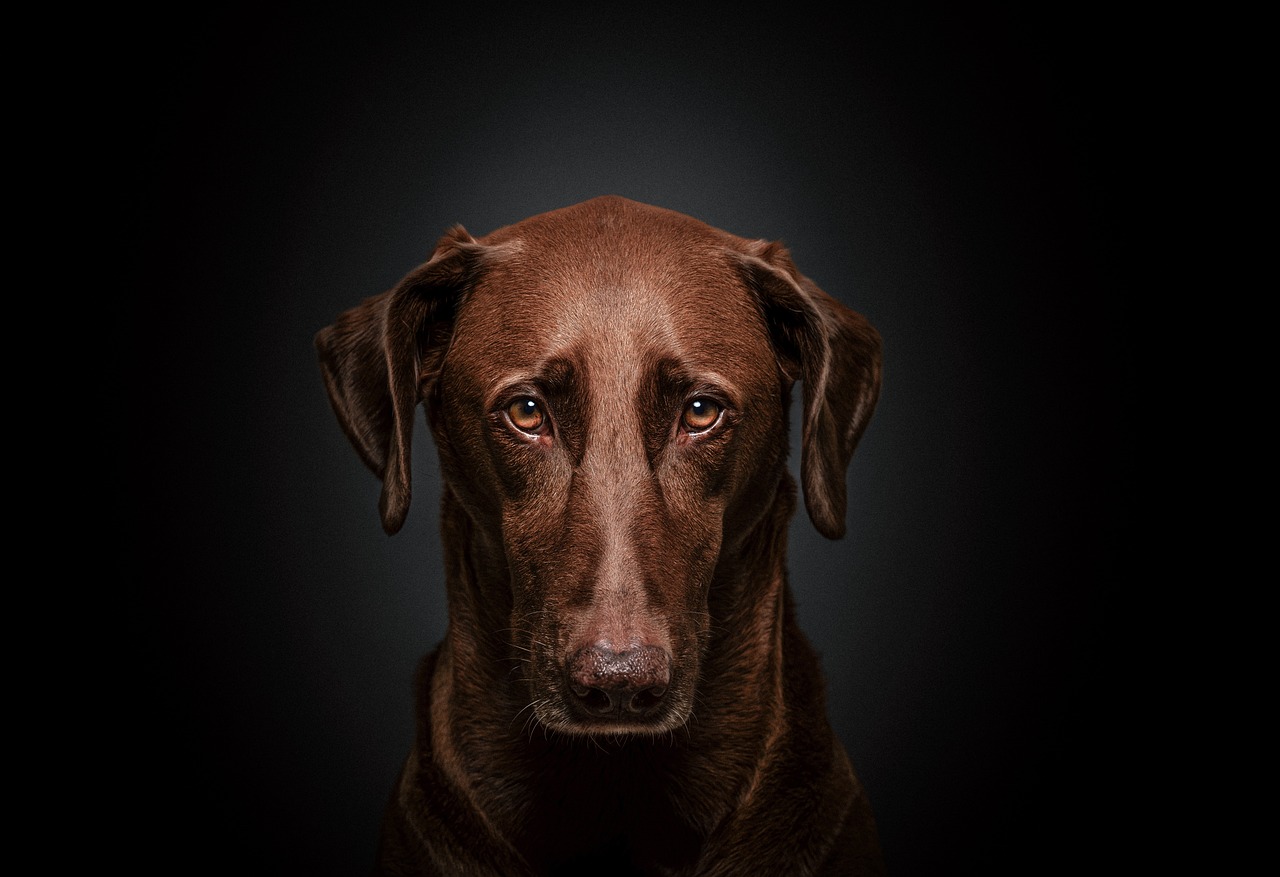
The Impact of Adopting Older Pets on Shelters
Adopting older pets is not just a noble act; it has a profound impact on animal shelters and the communities they serve. When individuals choose to adopt senior animals, they are helping to create a ripple effect that benefits not only the pets but also the shelters struggling with overcrowding. It's like giving a second chance at life to these furry companions who have so much love to offer. By opening their homes to older pets, adopters are playing a crucial role in alleviating the burden on shelters, allowing them to focus their resources on other animals in need.
Many shelters are often overwhelmed with the number of animals they take in, and older pets are frequently the last to be adopted. This is primarily due to misconceptions about their health and behavior, which we discussed earlier. However, when people adopt older pets, they not only provide these animals with a loving home but also create space in shelters for younger pets who may need immediate care. This can lead to a more balanced environment within the shelter, where each animal receives the attention and resources they deserve.
Moreover, adopting older pets can foster a sense of community awareness regarding the needs of senior animals. When people share their experiences of adopting older pets, it encourages others to consider doing the same. This can lead to increased support for local shelters and rescue organizations, as more individuals become informed about the challenges faced by older animals. In essence, adopting an older pet can spark a movement, creating a community that values compassion and responsibility towards all animals.
To illustrate the impact of adopting older pets on shelters, consider the following table:
| Impact | Description |
|---|---|
| Reduces Overcrowding | Adopting older pets frees up space in shelters for other animals, allowing them to rescue more pets in need. |
| Increases Community Support | Awareness of older pet adoption can lead to more community involvement and donations to shelters. |
| Improves Animal Welfare | More adoptions mean fewer animals living in stressful shelter environments, improving their overall welfare. |
In conclusion, the impact of adopting older pets extends far beyond just saving a life. It contributes significantly to the well-being of shelters and the community at large. By choosing to adopt a senior pet, individuals are not only gaining a loyal companion but also playing an essential role in enhancing the lives of countless animals. So, the next time you're considering adding a furry friend to your family, think about the older pets waiting for their forever homes. You'll be surprised at the joy and love they can bring into your life!
- Why should I consider adopting an older pet? Older pets often come with established temperaments, are usually already trained, and can provide companionship without the high energy levels of younger animals.
- Are older pets more likely to have health problems? While older pets may face some health issues, many are manageable with proper veterinary care and a healthy lifestyle.
- How can I prepare for adopting an older pet? It's important to research common health issues, establish a routine veterinary check-up schedule, and provide a balanced diet and appropriate exercise.
Reducing Shelter Overcrowding
Adopting older pets plays a pivotal role in , a pressing issue faced by many animal shelters today. When you choose to adopt a senior animal, you're not just bringing a furry friend into your home; you're also making a significant impact on the lives of countless other animals waiting for their forever homes. Imagine a crowded shelter, where each bark and meow echoes the longing for companionship and love. By opting for an older pet, you help create space for younger animals who also deserve a chance at life.
Many people are unaware of the sheer number of animals in shelters. According to recent statistics, approximately 3.3 million dogs and 3.2 million cats enter U.S. shelters every year. With such staggering numbers, the need for effective solutions is urgent. Adopting an older pet not only alleviates the burden on shelters but also allows them to focus their resources on other animals in need of care and rehabilitation. This means more lives can be saved, and more animals can find the loving homes they deserve.
Additionally, older pets often come with their own set of advantages that make them appealing choices for adopters. They tend to be more adaptable and less demanding than their younger counterparts. Many have already been house-trained and come with established temperaments, making the transition into a new home smoother and more enjoyable. This not only benefits the adopters but also helps shelters by ensuring that these pets are less likely to be returned, which can happen with younger animals that require more training and energy.
Moreover, when potential adopters choose to adopt older pets, they send a powerful message to the community. It emphasizes that every animal, regardless of age, has value and can bring joy and companionship to a family. This can inspire others to consider adopting senior pets, creating a ripple effect that can significantly reduce the number of animals in shelters. By sharing stories of successful adoptions, communities can raise awareness about the joys of adopting older pets, encouraging more people to visit their local shelters.
In conclusion, adopting older pets is not just a personal choice; it is a community effort that can lead to meaningful change. Every adoption helps reduce shelter overcrowding and gives these loving animals a second chance at life. So, the next time you're considering expanding your family, think about the older pets waiting patiently in shelters. You might just find your new best friend while making a difference in the world.
- Why should I adopt an older pet? Older pets often have established behaviors, are usually house-trained, and can be less demanding than younger animals.
- Are older pets healthy? While they may have some health issues, many are manageable with proper care and regular veterinary visits.
- How can I prepare for an older pet? Research common health issues, ensure your home is pet-friendly, and be ready to provide love and patience as they adjust.
- What if I have other pets at home? Many older pets can adapt well to living with other animals, especially if introductions are handled carefully.
Community Awareness and Support
When it comes to adopting older pets, community awareness plays a pivotal role in ensuring these animals find loving homes. Many people are simply unaware of the unique benefits that older pets offer, and this lack of knowledge can lead to fewer adoptions. By spreading the word about the joys of adopting senior animals, we can help change the narrative surrounding them. Imagine a community where every older pet has a warm bed and a loving family—this can be our reality if we rally together!
Community support can take many forms. Local shelters and rescue organizations often host events and campaigns to promote the adoption of older pets. These initiatives not only highlight the special qualities of senior animals but also educate potential adopters on how to care for them. For instance, workshops on understanding the health needs of older pets or training sessions that focus on integrating them into a new home can be incredibly beneficial.
Moreover, social media has become a powerful tool in raising awareness. Sharing heartwarming stories and photos of older pets looking for homes can touch the hearts of many. By creating engaging content that showcases the personalities and quirks of these animals, communities can foster a sense of connection. Who wouldn't want to adopt a pet with a story that resonates with their own life experiences?
To further encourage community involvement, shelters can establish partnerships with local businesses. For example, pet supply stores might offer discounts on pet food or supplies for those who adopt older pets. This not only incentivizes adoptions but also strengthens community ties. Together, we can create an environment where adopting an older pet is seen as a rewarding and fulfilling experience.
Ultimately, the goal is to cultivate an atmosphere of compassion and understanding. When communities come together to support the adoption of older pets, they not only save lives but also enrich their own. The love and gratitude that older pets offer in return can be a transformative experience for both the animals and their new families. So, let’s spread the word, share our stories, and celebrate the joy that older pets bring into our lives!
- Why should I consider adopting an older pet? Older pets are often already trained, have established temperaments, and can provide companionship without the high energy levels of younger pets.
- What health issues should I expect with an older pet? Common health issues can include arthritis, dental problems, and other age-related conditions. Regular veterinary care can help manage these issues.
- How can I prepare for adopting an older pet? Research the specific needs of older pets, ensure you have a comfortable living space, and consider routine veterinary check-ups as part of your plan.
- Can older pets still bond with new owners? Absolutely! Older pets often form deep, lasting connections with their adopters, bringing immense joy and companionship into their lives.

Creating Lasting Bonds with Older Pets
When you think about bringing a new furry friend into your home, have you ever considered the profound connections that can develop with older pets? These wise companions often carry a wealth of life experiences, making them uniquely equipped to form deep, lasting bonds with their adopters. Imagine curling up on the couch with a gentle soul who has seen the world, providing you with a sense of comfort and companionship. Older pets not only seek love but also have a remarkable ability to give it back tenfold.
One of the most beautiful aspects of adopting an older pet is witnessing their transformation in a loving environment. Many of these animals have faced uncertainty and change in their lives, and when they find a forever home, it’s like a light bulb turns on. They become grateful for the second chance, and this gratitude can lead to incredibly fulfilling relationships. It's not uncommon for an older dog or cat to follow you around the house, seeking your presence as if to say, "Thank you for choosing me!"
Building a bond with an older pet is often about understanding their needs and providing them with the comfort they crave. Unlike younger pets that might require extensive training and high-energy activities, older pets usually come with established temperaments and personalities. This means you can spend more time enjoying your companionship rather than worrying about training sessions. They often appreciate the simple pleasures in life, such as leisurely walks, cozy naps, and gentle playtime, which can make your time together incredibly rewarding.
Moreover, older pets are often calmer and more predictable in their behavior. This stability can be especially beneficial for families with children or individuals looking for a companion that won’t outpace them. Imagine how relaxing it is to have a pet that enjoys quiet evenings just as much as you do. Their laid-back nature can create a serene atmosphere in your home, allowing you to unwind after a long day.
However, it’s important to acknowledge that every pet is unique. While many older pets are ready to form bonds quickly, others may take a little more time to adjust. Patience is key. Spending quality time with them, engaging in gentle activities, and creating a routine can help foster trust and affection. Over time, you’ll find that your older pet will open up and reveal their personality, quirks, and love.
To help you understand the impact of adopting older pets, consider the following table that highlights the emotional benefits of these bonds:
| Benefit | Description |
|---|---|
| Companionship | Older pets offer loyal companionship, helping to alleviate feelings of loneliness. |
| Emotional Support | They can provide comfort during tough times, often sensing when you need them nearby. |
| Reduced Stress | Spending time with an older pet can lower stress levels and promote relaxation. |
| Joy and Laughter | Despite their age, many older pets have a playful side that can bring joy to your life. |
In conclusion, adopting an older pet not only enriches their life but also brings immeasurable joy to yours. The bonds formed with these animals can be some of the most rewarding relationships you'll ever experience. So, the next time you're considering adding a furry friend to your family, remember the love and companionship that an older pet can offer. They are not just animals; they are lifelong friends waiting to share their hearts with you.
- What are the advantages of adopting older pets? Older pets are often already trained, have established temperaments, and provide a calm companionship.
- Are older pets more likely to have health issues? While some older pets may have health concerns, many are manageable with proper care.
- How can I help my older pet adjust to a new home? Provide a routine, engage in gentle activities, and give them time to acclimate to their new environment.
- Can older pets still learn new tricks? Yes! Older pets can learn new behaviors and commands, although they may take a bit longer than younger animals.
Frequently Asked Questions
- What are the benefits of adopting an older pet?
Adopting an older pet comes with numerous advantages! They often have established temperaments, which means you can expect a calmer and more predictable companion. Plus, many older pets are already trained, making the transition into your home smoother. You’ll find that they can be incredibly loyal and loving, providing companionship without the high energy levels of younger animals.
- Are older pets more likely to have health issues?
While it's true that older pets may face some health challenges, many of these issues are manageable with proper care. Regular veterinary visits and a healthy lifestyle can significantly enhance their quality of life. It’s essential to be informed about common health concerns, such as arthritis or dental problems, but many older pets can enjoy a happy and active life with the right support.
- What should I know about the behavior of older pets?
Older pets tend to exhibit calmer and more predictable behaviors compared to their younger counterparts. This makes them ideal for families or individuals looking for a less active companion. They often have a wealth of experience and can form deep, lasting bonds with their adopters, showcasing love and gratitude that enriches both their lives and yours.
- How does adopting older pets help shelters?
When you adopt an older pet, you play a crucial role in reducing overcrowding in shelters. This not only helps the individual animal find a loving home but also allows shelters to allocate resources to care for other animals in need. Your decision to adopt can create a ripple effect, fostering community awareness about the importance of supporting senior animals.
- What preventive care do older pets need?
Preventive care is vital for older pets to ensure they live long, healthy lives. Regular veterinary check-ups, a balanced diet, and appropriate exercise are essential. These practices can help prevent or manage health issues, allowing your furry friend to thrive in their golden years.


